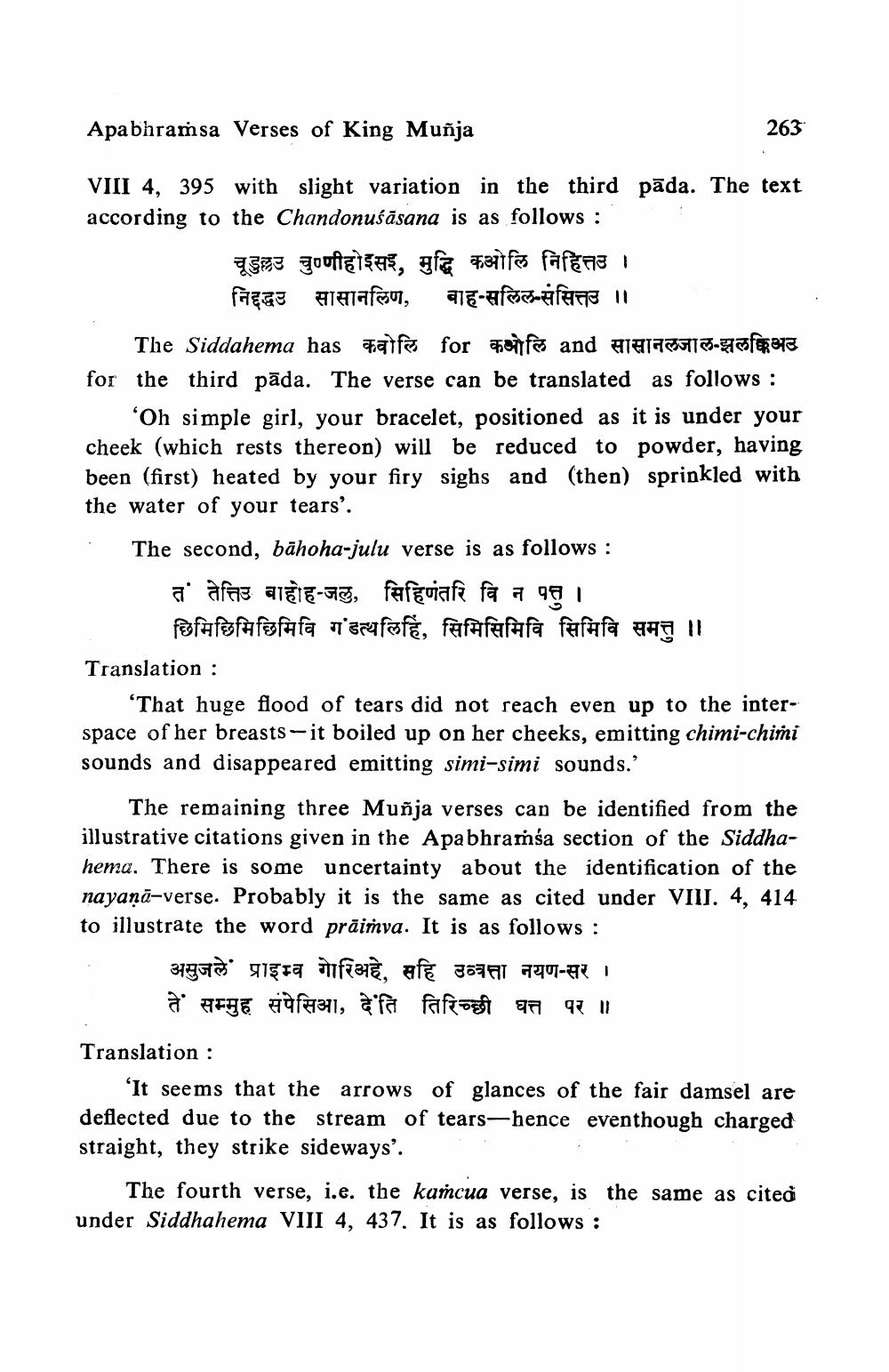________________
Apabhramsa Verses of King Muñja
263
VIII 4, 395 with slight variation in the third pāda. The text according to the Chandonuśāsana is as follows :
चूडुल्लउ चुण्णीहोइसई, मुद्धि कओलि निहित्तउ ।
faegs annafsso, a13-afssäfAFS 11 The Siddahema has falfes for abenfes and A19175A13-7814243 for the third pāda. The verse can be translated as follows :
"Oh simple girl, your bracelet, positioned as it is under your cheek (which rests thereon) will be reduced to powder, having been (first) heated by your firy sighs and (then) sprinkled with the water of your tears'. The second, bāhoha-julu verse is as follows :
त तेत्तिउ बाहोह-जलु, सिहिणंतरि वि न पत्तु ।
छिमिछिमिछिमिवि गडत्यलिहिं, सिमिसिमिवि सिमिवि समत्तु ।। Translation :
'That huge flood of tears did not reach even up to the interspace of her breasts -- it boiled up on her cheeks, emitting chimi-chimi sounds and disappeared emitting simi-simi sounds.'
The remaining three Muñja verses can be identified from the illustrative citations given in the Apabhraíśa section of the Siddhahema. There is some uncertainty about the identification of the nayaņā-verse. Probably it is the same as cited under VIII. 4, 414 to illustrate the word prāimva. It is as follows :
असुजले प्राइम्व गोरिअहे, सहि उव्वत्ता नयण-सर ।
ते सम्मुह संपेसिआ, देति तिरिच्छी घत्त पर ॥ Translation:
'It seems that the arrows of glances of the fair damsel are deflected due to the stream of tears-hence eventhough charged straight, they strike sideways'.
The fourth verse, i.e. the kamcua verse, is the same as cited under Siddhahema VIII 4, 437. It is as follows:




